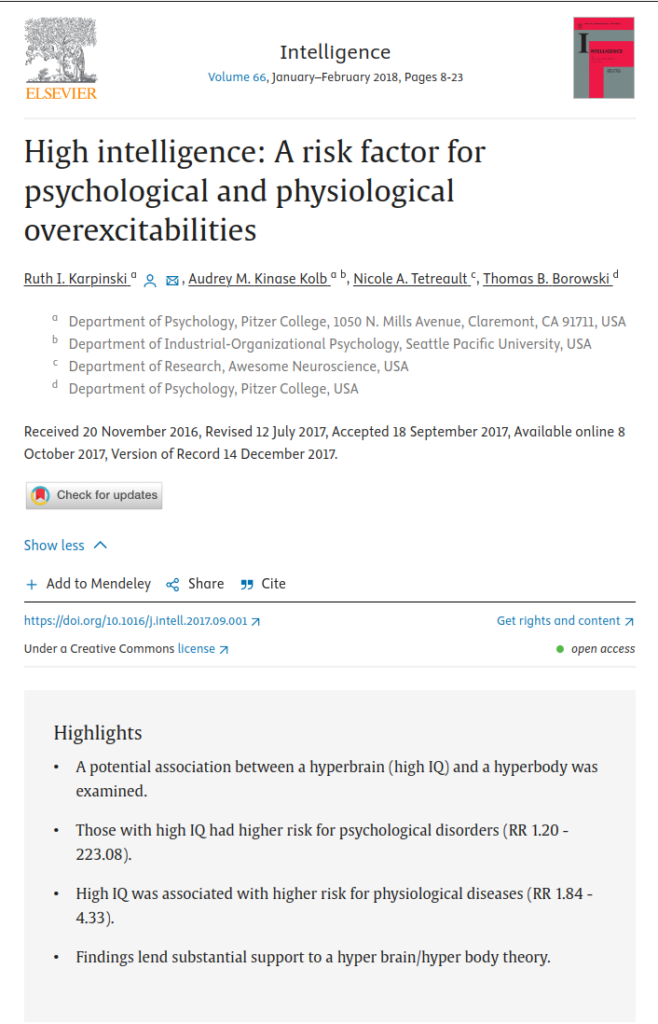High intelligence is touted as being predictive of positive outcomes including educational success and income level. However, little is known about the difficulties experienced among this population. Specifically, those with a high intellectual capacity (hyper brain) possess overexcitabilities in various domains that may predispose them to certain psychological disorders as well as physiological conditions involving elevated sensory, and altered immune and inflammatory responses (hyper body). The present study surveyed members of American Mensa, Ltd. (n = 3715) in order to explore psychoneuroimmunological (PNI) processes among those at or above the 98th percentile of intelligence. Participants were asked to self-report prevalence of both diagnosed and/or suspected mood and anxiety disorders, attention deficit hyperactivity disorder (ADHD), autism spectrum disorder (ASD), and physiological diseases that include environmental and food allergies, asthma, and autoimmune disease. High statistical significance and a remarkably high relative risk ratio of diagnoses for all examined conditions were confirmed among the Mensa group 2015 data when compared to the national average statistics. This implicates high IQ as being a potential risk factor for affective disorders, ADHD, ASD, and for increased incidence of disease related to immune dysregulation. Preliminary findings strongly support a hyper brain/hyper body association which may have substantial individual and societal implications and warrants further investigation to best identify and serve this at-risk population.
High intelligence: A risk factor for psychological and physiological overexcitabilities
Publication
Intelligence
Volume 66, Pages 8-23
Abstract
Web and Email Links
Related Listings
Journal
Behavioral Medicine
This study evaluated the efficacy of the relaxation response on the postoperative recovery of 27 cardiac surgery patients randomly assigned to one of two groups. Thirteen experimental group patients received educational information and practiced eliciting the relaxation response before and after surgery. The 14 patients in the control group received only information. Experimental and control groups were compared before and after surgery on both physiological and psychological recovery […]
Journal
American Heart Journal
Background: The effect of intercessory prayer (IP) on outcome in cardiac cases has been evaluated previously, but results are controversial. The goals of the Study of the Therapeutic Effects of Intercessory Prayer (STEP) are to evaluate the effects of receipt of additional study IP and awareness of receipt of additional study IP on outcomes in patients undergoing coronary artery bypass graft surgery. STEP is not designed to determine whether God exists or whether God does or does not […]
Journal
The American Journal of Psychiatry
A framework for the integration of meditation and psychotherapy is presented through a consideration of the psychobiological nature of meditation (the relaxation response) and discussion of a traditional meditation practice (mindfulness meditation) as an effective cognitive technique for the development of self-awareness. The mechanisms by which the emotional and cognitive changes of meditation can be of therapeutic value are explored and the synergistic advantages of the combination […]

